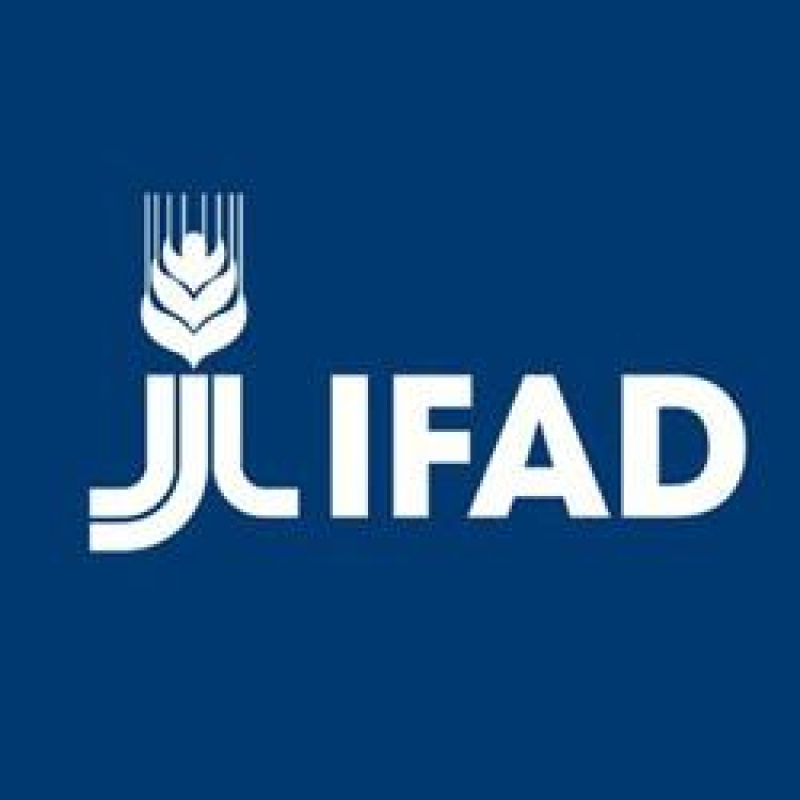- CA urges united efforts to stop food contamination voicing concern |
- Tarique obliquely slams Jamaat for ‘propaganda’ against BNP echoing AL |
- Medical team hopeful about Khaleda’s recovery in Bangladesh |
- Beanibazar green cover shrinks, migratory birds disappear |
- অতিথি পাখির বিচরণ আর দুষ্টুমিতে নান্দনিক হয়ে উঠেছে কুয়াকাটার চর বিজয় |
IFAD convenes workshop on methane reduction in agriculture

IFAD logo
Dhaka, 15 October 2025: Reducing methane emissions from agriculture will depend on how effectively scientific insights are translated into everyday farming practice, supported by strong institutions, clear guidance, and farmer-driven delivery systems, said speakers at a workshop today in Dhaka organised by The International Fund for Agricultural Development (IFAD) Bangladesh Country Office.
The day-long workshop ‘Methane Reduction in Agriculture: Bangladesh Perspective’ aimed to share evidence on rice methane mitigation, advance adoption of proven climate-smart practices such as Alternate Wetting and Drying (AWD) and build a common understanding of greenhouse gas dynamics among IFAD-financed project personnel. Today was the first session of the four-day workshop series organised under IFAD’s Reducing Agricultural Methane Programme (RAMP).
“In our country, evidence from our research and scientists shows that up to 37 to 40 per cent AWD can reduce methane. If we introduce short-duration varieties, yield potential is increased. That could be another option to mitigate our methane emission. We have the option but need to apply. That needs collaboration between government, non-government organisations, partners like IFAD and other actors,” said Dr Mohammad Khaleduzzaman, Director General, Bangladesh Rice Research Institute (BRRI) while speaking as the special guest.
Dr Jiban Krishna Biswas, Plant Physiologist and Environmental Scientist delivered his presentation on “Climate-smart agriculture: Addressing GHG emissions.” He stressed on the practical pathways to reduce methane emissions while maintaining productivity and improving water efficiency,
“Bangladesh can cut methane from rice while protecting yields, lowering water use and strengthening rural livelihoods. Today is about connecting science, policy and field practice so that innovation translates into impact,” said Dr Valantine Achancho, IFAD Country Director for Bangladesh, while opening the workshop.
He also outlined three immediate priorities for scale, which are a clear and evidence-based AWD guidance that is simple to teach and monitor; institutional delivery systems that align training, extension and irrigation management; and strong data and learning mechanisms to track results and refine action.
Md Mozammel Haque, Senior Scientific Officer, BRRI, spoke on ‘Greenhouse Gas Emissions in Bangladesh: Sectoral Trends and Mitigation Opportunities,’ while Md Mahbubul Alam, Principal Scientific Officer and Head of the Irrigation and Water Management Division, BRRI, presented on ‘Translating AWD Science: Evidence-based Guidelines for Effective Adoption.
Discussions highlighted that AWD can reduce methane emissions and irrigation water use without compromising yields when enabling conditions are in place, such as reliable water control, land levelling and timely irrigation scheduling. Demonstration plots, farmer-to-farmer exchange and practical monitoring tools were identified as critical to building confidence and accelerating uptake across IFAD-financed projects.
The workshop concluded with participatory group work, agreeing on next steps to translate lessons into field guidance, training modules, and light monitoring systems that can feed national reporting and inform policy dialogue. – Press release

